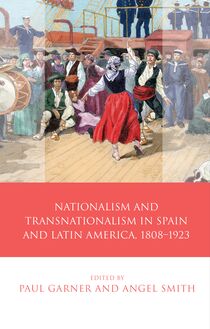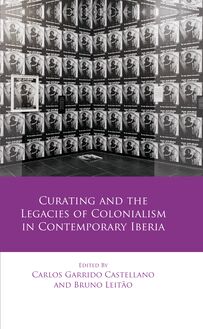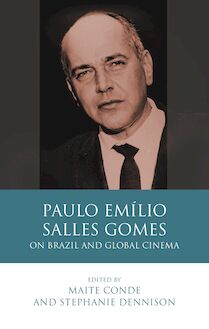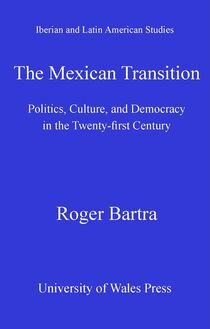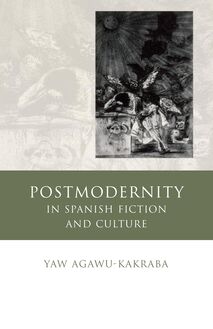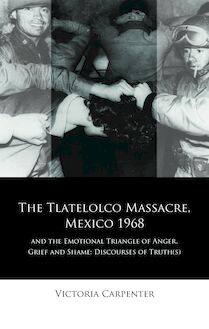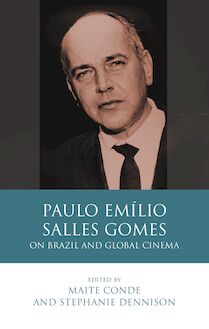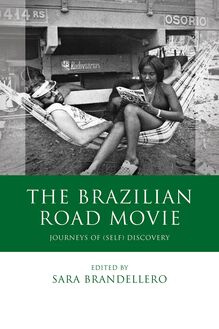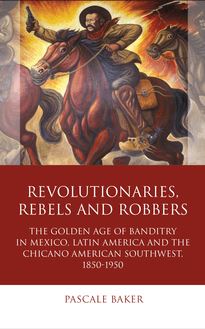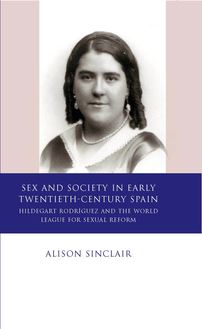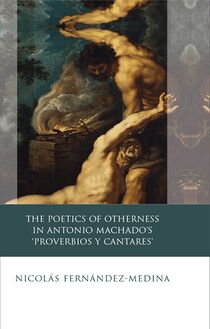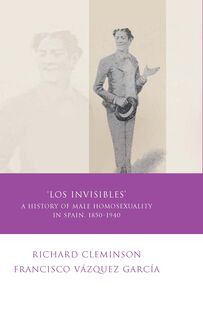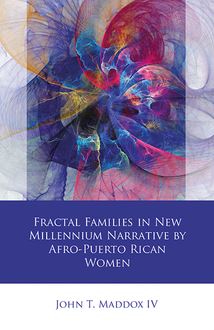Los Invisibles , livre ebook
165
pages
English
Ebooks
2011
Vous pourrez modifier la taille du texte de cet ouvrage
Obtenez un accès à la bibliothèque pour le consulter en ligne En savoir plus
Découvre YouScribe en t'inscrivant gratuitement
Découvre YouScribe en t'inscrivant gratuitement
165
pages
English
Ebooks
2011
Vous pourrez modifier la taille du texte de cet ouvrage
Obtenez un accès à la bibliothèque pour le consulter en ligne En savoir plus
Publié par
Date de parution
15 juillet 2011
Nombre de lectures
1
EAN13
9781783164875
Langue
English
Research into homosexuality in Spain is in its infancy. The last ten or fifteen years have seen a proliferation of studies on gender in Spain but much of this work has concentrated on women's history, literature and femininity. In contrast to existing research which concentrates on literature and literary figures, "Los Invisibles" focuses on the change in cultural representation of same-sex activity of through medicalisation, social and political anxieties about race and the late emergence of homosexual sub-cultures in the last quarter of the twentieth century. As such, this book constitutes an analysis of discourses and ideas from a social history and medical history position. Much of the research for the book was supported by a grant from the Wellcome Trust to research the medicalisation of homosexuality in Spain.
Publié par
Date de parution
15 juillet 2011
Nombre de lectures
1
EAN13
9781783164875
Langue
English
I BERIAN AND L ATIN A MERICAN S TUDIES
Los Invisibles
Series Editors Professor David George (University of Wales, Swansea) Professor Paul Garner (University of Leeds)
Editorial Board David Frier (University of Leeds) Lisa Shaw (University of Liverpool) Gareth Walters (University of Exeter) Rob Stone (University of Wales, Swansea) David Gies (University of Virginia) Catherine Davies (University of Nottingham)
IBERIAN AND LATIN AMERICAN STUDIES
Los Invisibles
A History of Male Homosexuality in Spain, 1850-1939
RICHARD CLEMINSON AND FRANCISCO V ZQUEZ GARC A
Richard Cleminson and Francisco V zquez Garc a, 2007 Cover illustration: Cayetano del Toro, La Luz y la Pintura, 2 vols., vol. I., (Cadiz: Real Academia de BellasArtes de C diz, 1901), p. 628.
All rights reserved. No part of this book may be reproduced, stored in a retrieval system, or transmitted, in any form or by any means, electronic, mechanical, photocopying, recording or otherwise, without clearance from the University of Wales Press, 10 Columbus Walk, Brigantine Place, Cardiff, CF10 4UP. www.wales.ac.uk/press
British Library Cataloguing-in-Publication Data A catalogue record for this book is available from the British Library.
ISBN: 978-0-7083-2012-9 eISBN: 978-1-78316-487-5
The rights of Richard Cleminson and Francisco V zquez Garc a to be identified as authors of this work have been asserted by them in accordance with the Copyright, Designs and Patents Act 1988.
Contents
Series Editors Foreword Acknowledgements Chapter One: Introduction Chapter Two: The Birth of the Invert : a Truncated Process of Medicalization Chapter Three: The Sexological Context, 1915-1939: Sexual Inversion, Mara n s Intersexuality and the Social Dangerousness of the Homosexual Chapter Four: Quien Con Ni os se Junta : Childhood and the Spectre of Homoerastia Chapter Five: In Search of Men : Regeneracionismo and the Crisis of Masculinity (1898-1936) Chapter Six: Homosexual Subcultures in Spain: the Intersection of Medicine, Politics and Identity Chapter Seven: Conclusion Bibliography
Series Editors Foreword
Over recent decades, the traditional languages and literatures model in Spanish departments in universities in the United Kingdom has been superceded by a contextual, interdisciplinary and area studies approach to the study of the culture, history, society and politics of the Hispanic and Lusophone worlds categories which extend far beyond the confines of the Iberian Peninsula, not only to Latin America but also to Spanish-speaking and Lusophone Africa.
In response to these dynamic trends in research priorities and curriculum development, this series is designed to present both disciplinary and interdisciplinary research within the general field of Iberian and Latin American Studies, particularly studies which explore all aspects of Cultural Production ( inter alia literature, film, music, dance, sport) in Spanish, Portuguese, Basque, Catalan, Galician and the indigenous languages of Latin America. The series also aims to publish research on the History and Politics of Hispanic and Lusophone worlds, both at the level of region and that of the nation-state, as well as on Cultural Studies which explore the shifting terrains of gender, sexual, racial and postcolonial identities in those same regions.
Acknowledgements
Francisco V zquez would like to acknowledge the part played in this book by two people who are no longer with us: Jean-Louis Flandrin and Mariano Pe alver. What is of value in his contribution to this book stems from the guidance of these two figures. J. L. Flandrin inspired his interest in the history of sexuality. M. Pe alver has been his intellectual mentor in all his undertakings. He would also like to mention his friend Andr s Moreno, who has accompanied his exploration of the sexual history of Spain, and Raphael Carrasco, of the University of Montpellier, a pioneer in the history of homosexuality in Spain. He would like to thank the librarians Ana Rem n y Charo Gestido for their kindness and assistance when consulting the wonderful special collections of the Faculty of Medicine, University of Cadiz. His colleagues Jos Luis, Juan, Ram n, Rafael, Antonio, C ndido, Carlos and Cinta have provided a pleasant and stimulating place to work in and his development of a researcher would not have been possible without them. He has learned more from his doctoral students Pepe Moreno Pesta a, Jos Benito, Alfonso Marqu s, Antonio Polo and Alejandro Estrella than he could ever have taught them. Finally, he would like to thank Oliva - without her love and support he would not have managed to summon the strength to finish this project.
Richard Cleminson, for his part, would like to acknowledge the encouragement to research and write this book at different stages of this project, from a mere idea to completion, from Chris Perriam, Alison Sinclair, Julia Varela, Fernando lvarez-Ur a, ngel Gordo L pez, Rosa Mar a Medina Dom nech, Paul Julian Smith and Jorge Ur a. Colleagues at the University of Leeds and his previous institution have provided a stimulating background at different stages. His research into the medicalization of male homosexuality in Spain was made possible by a generous Award in the History of Medicine from the Wellcome Trust in 2002-3 and by being given an academic home in the Department of Pathological Anatomy and the History of Medicine, University of Granada, from 2003 to 2004. His invitation to speak at the University of Oviedo in 2002 turned out to be a life-changing event, as did his longer sojourn in Granada from 2002 to 2004. Many of the challenges and joyous moments of these places were faced accompanied by Fredy - to him my greatest thanks of all.
Both authors would like to thank Sarah Lewis, of the University of Wales Press, for her encouragement and patience in the final stages of the delivery of the manuscript.
Chapter One
Introduction
In Alexis o el significado del temperamento urano , published in 1932 in Madrid, the Uruguayan literary critic and homosexual rights advocate Alberto Nin Fr as wrote that in his day like no other, the individual s sexual life had gained a significance far above any other aspect of their existence. 1 Nin Fr as, whose book Homosexualismo creador was also published by the well-known Morata house, 2 reflected the realities of a time which, despite considerable differences, strikes a chord in today s world where sexuality is still claimed to be the driving force behind one s character, feelings and actions. It is true that Nin Fr as wrote his two books on the homosexual question in a period that was in many senses exceptional. It cannot be denied that his books would have been published with difficulty even five years earlier, under the dictatorship of General Miguel Primo de Rivera (1923- 30). The Spanish Republic (1931-6), emblem of modernity, opened up a political and cultural space which was, apart from the period from 1975 onwards, unrivalled in Spain s contemporary history for its degree of openness and spirit of cultural experimentation. 3 The homosexual question flourished under its aegis.
However, despite certain parallels that can be drawn between the 1930s and the present day it is noteworthy that, in contrast to some other European countries, most of the now extensive work on sexuality and gender in Spain has been confined either to the Inquisition period or to more literary or sociological accounts of post-Franco times. 4 Save the more accessible subjects of study from the early twentieth century such as the poet and playwright Federico Garc a Lorca and literary figures in more present times such as Juan Goytisolo, Luis Antonio de Villena and Terenci Moix, work on the contemporary history of male homosexuality in Spain has been minimal (it is even more sparse on female homosexuality), despite the large, although disparate, variety of sources readily available to the historian. 5
It is, therefore, not surprising that in recent publications related to male homosexuality in literature or culture, to name two areas, the past really does seem to be a foreign country , with accounts rarely touching upon the pre-Transition period. 6 There may well be, nevertheless, good reasons for this lack of historical emphasis. The conception that homosexuality was repressed and therefore invisible before the transition to democracy is a strong motif which still holds sway. The aura around famous homosexual figures, such as Garc a Lorca, may have, paradoxically, obscured the very nature of homosexual subcultures in the 1920s and 1930s as well as their historical investigation. The fact that homosexuality is, to a considerable degree, still taboo in Spain, is a third historically potent explanation. 7
Eric Hobsbawm, in his recent book on the short twentieth century , wrote that one of the most eerie developments in recent years has been the tendency to forget history, to have one s past erased. 8 In the context of the recuperation of all kinds of people s history - from that of the persecutions of the Nazi period, the recent attempts to recover historical memory from the Franco period, and that of the multiple directions that social history has moved into - a history of male homosexuality in the contemporary period is, we feel, justified and necessary on numerous grounds. The increasingly sophisticated arguments that sexual history cannot be divorced from wider social and historical processes has been championed convincingly by too many historians to list. 9 That Spain s sexual history is still largely to be explored suggests that there are multiple insights to be drawn from an analysis of the workings of sexuality in its broader historical context. Furthermore, the study of similarities and differences between different national sexual histories can only enrich our historical understanding of all societies concerned. 10
The methods of research employed here and the conceptualization of what materia

